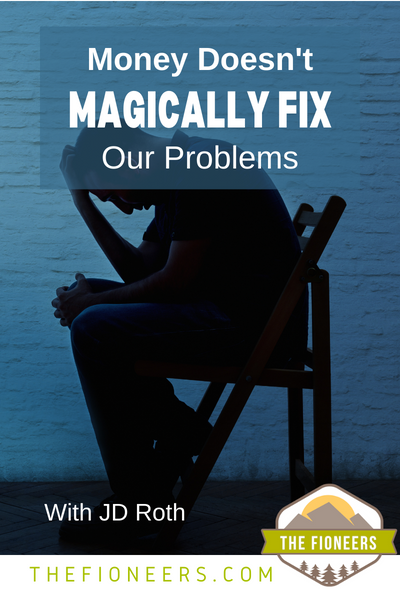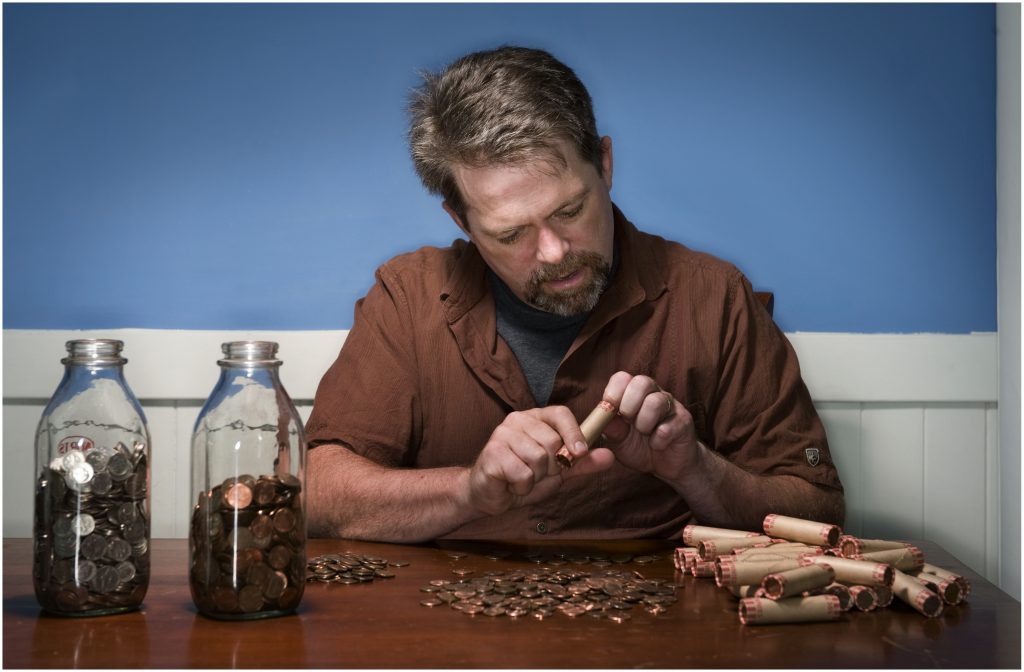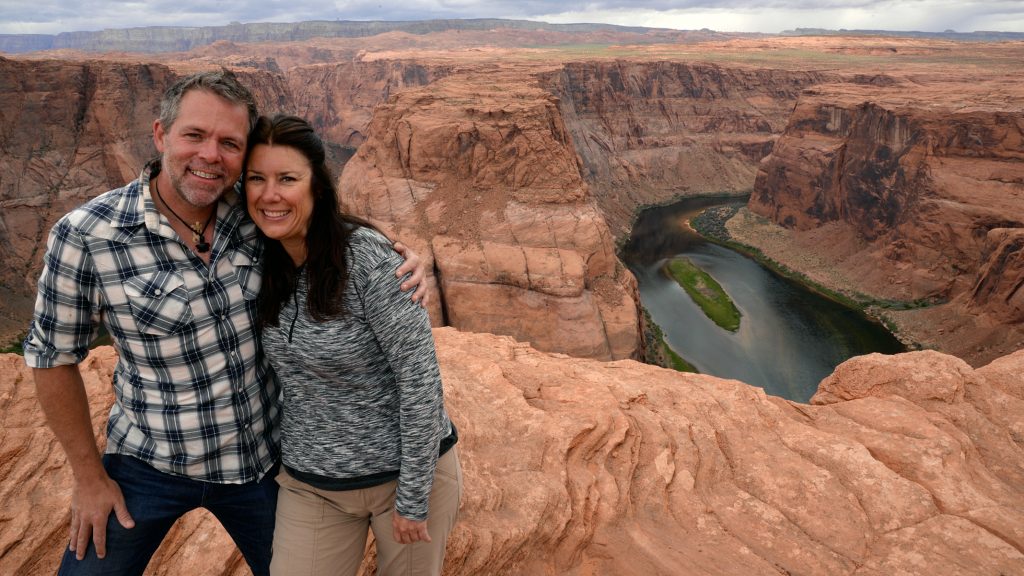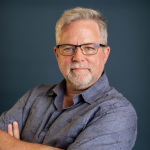

I first learned about Financial Independence in late 2017. At the time, I was not convinced that I wanted to pursue it. Based on the stories I’d heard, pursuing FI seemed like a life of deprivation. People seemed to put off their happiness until after they reached FI and, then, be no happier once they reached it.
In mid-2018, I heard an interview with JD Roth on the Afford Anything podcast. In the interview, JD shared that he, too, had taken this approach. Throughout his debt-freedom journey and life, he used money (or lack of it) as an excuse for not doing things that would improve his life.
When he was catapulted to financial independence in 2009 after selling his blog, Get Rich Slowly, a realization set in.
Money was no longer a barrier, but things didn’t magically get better.
He shared that money was not a cure-all and encouraged people to focus on improving their lives all along the journey to their desired financial goals.
This interview was exactly what I needed to hear at that moment. I realized that I could pursue financial independence and build a fulfilling life all along the way. And, it helped inform our own philosophy: the journey to FI should be as remarkable as the destination.
Given that JD Roth was such an inspiration for our own FI journey, I am thrilled to interview him in our Slow FI series and dig more deeply into these ideas!
1. Tell me about yourself.
I’m just an average, everyday nerd who stumbled upon the world of personal finance and, eventually, financial independence. For many years, I struggled with money. I come from a poor family, and neither of my parents had any idea how to handle money effectively. I didn’t know how to do so either.


For many years, I struggled with consumer debt. Eventually, though, I decided to teach myself about personal finance, so I read every book my public library had on the subject. Because I process my thoughts and feelings through writing, I decided to write out what I was learning.
In April 2006, I started a blog, Get Rich Slowly, to share what I was learning, as I was learning it. I wrote about my successes and my failures. In time, I eliminated my debt, built some wealth, and today have achieved “financial independence.”
2. Why did you decide to pursue financial independence in the first place?
I never set out to pursue financial independence. It was never on my radar. The concept existed in 2006, of course, but it wasn’t anywhere near as prevalent as it is today — and wouldn’t be for another five years.
I simply wanted to get out of debt. Being in debt was a burden. It felt like being in chains as if all of my income was being routed to somebody else. I wanted to be free of that.
I did get out of debt, but I also got lucky. I managed to build a business, which I eventually sold. That event springboarded me to financial freedom.
3. How did you approach your FI journey?
I focused on both earning more and spending less. I had dug myself into debt through poor spending habits, so those absolutely had to be addressed.
But frugality alone would not have been enough for me to reach financial independence. While I was cutting costs, I was also finding ways to earn extra money. At first, this extra income was small but it grew to huge amounts in time.
Having a high income was what allowed me to achieve financial independence quickly. I decided to turn my financial life around in October 2004. I had repaid all of my debt by December 2007.
And by April 2009, I had achieved financial independence. (Again, that’s because I sold my business and achieved a windfall. That’s not a typical path, and I know it. Ironically, Get Rich Slowly allowed me to get rich quickly, but that was never my intention.)
4. You’ve shared that when you reached FI, you realized that you were unhappy. You had used money (or lack of it) as an excuse to not improve your life. Tell us more about this.
I actually need to write an article about this concept. Several people have told me that it hit them hard when they heard me mention it. At the time, it was just an off-hand remark, and I haven’t thought it all the way through. Writing an essay on the subject might be useful. But let’s start by answering your question!
As many people do, I used to believe that a lack of money was the source of my problems. I was poor when I was young. Then, after I had an average income, I was no longer poor but I was deep in consumer debt. I constantly told myself that my lack of money was preventing me from being the man I wanted to be.
I was unhappy with my fitness. I’d grown unhappy with my marriage. I was unhappy with my work. I was unhappy with how I spent my free time. In short, I was a mass of discontent. I blamed this on my lack of funds. I couldn’t afford to get fit or solve my relationship problems or switch jobs or do anything better in my spare time. What’s more, I didn’t have the time because I had to work.
When I sold Get Rich Slowly in 2009, suddenly I did have the money for all of these things. But you know what? Merely having the money didn’t make my problems go away.
- Money doesn’t make you fit. Eating well and exercising make you fit.
- Money doesn’t make a happy marriage. Two people working together in a loving partnership make a happy marriage.
- Money doesn’t lead to fulfillment at work. Finding work that taps your talents leads to fulfillment at work.
- Money doesn’t lead to productive free time. Choosing rewarding hobbies and pastimes leads to productive free time.
I found myself with a pile of money but all of the same problems. For a couple of years, this only made me more miserable.
Then, slowly, I began to take the action that I ought to have been taking all along — even when I had little money.
I started going to the gym and eating well. I asked for a divorce. (I’m not advocating divorce as a solution to relationship issues, but it was the right choice in my case.) I began making productive use of my free time: taking Spanish lessons, organizing events, volunteering in the community, and traveling the world.


In nearly all of these cases, it hadn’t been the money that was holding me back. The barrier had been me all along.
I could have afforded to go to the gym, even when I was in debt. I could have taken Spanish classes. I could have volunteered in the community. Sure, money might have been a barrier to travel. But, nearly everything I began to do had been available to me before I’d become financially independent, but I’d been using money as an excuse.
And here’s a footnote about this whole concept. It’s interesting that since 2016, I’ve allowed myself to slide back to my old habits and ways of thinking. I stopped taking Spanish lessons, stopped volunteering, and stopped going to the gym. No surprise: I became unhappy and miserable again. This time, it’s clear that I have the money to solve these issues. But, as before, it’s not actually money that’s the barrier between me and happiness. I am the barrier. (I’m pleased to report that I’m in the process of turning things around!)
5. After realizing that you could no longer use money as an excuse, how did you start thinking about (and using) money differently?
When I was young, I viewed money as some sort of magic bullet. I thought that money was the solution to all of life’s ills. And let’s be clear: Money is a solution for many people who are trapped by circumstances beyond their control. I don’t want to ignore or downplay that fact. Money can indeed be an escape for those trapped at the lowest level of the socioeconomic ladder. But for most people, money is merely a tool and not a cure-all.
Today, that’s exactly how I see money: a tool. No, that’s not quite right. I see money as fuel. That’s a better analogy. A tool is durable and reusable. Money is not. Money is consumable. It’s a fuel source to help you fund the life you want. If you burn this fuel making detours to stops that don’t matter (buying things you don’t want or need, for instance), then you’re compromising your ability to reach the destination you have in mind.
Jess’ Note: I would argue that generating more fuel than you need is also a detour that can compromise your ability to reach your destination (and enjoy the journey along the way).
That’s the context I was missing when I was younger, back when I thought money was the solution to my problems. Back then, I was unclear about who I was as a person and where I wanted to go in life. As a result, I was burning my fuel (my money) pursuing random and/or arbitrary goals. Once I realized I could no longer use money as an excuse, I was able to find focus and direct this fuel toward things that mattered.
6. If you knew then what you know now, what would you have done differently after reaching FI?
One big thing I might have done differently is to have switched to doing something completely different a lot earlier after reaching FI. I didn’t do that. Or, more precisely, I only did so half-heartedly. I sort of quit writing about money for a little while, but then I worked my way back into the field. At the same time, I never came back 100%. So, for a decade now I’ve been sort of writing, sort of not. I don’t like it.
Recently, I’ve been reading the book Designing Your Life by Bill Burnett and Dave Evans. These two Stanford professors took their experience in the world of design and created a course for college students to help them figure out what they wanted to be when they grow up. They then converted that course into a wonderful book.
One of the many great exercises in Designing Your Life asks readers to imagine three possible five-year futures. One of those futures should be based on what you’re doing today. In my case, that means asking what I’d want Get Rich Slowly to be five years from today. (It would be something different than it is now.) But the other two possible futures are meant to be different and are meant to explore different aspects of your personality.
In my case, the two alternate futures are kind of radical. In one, I would volunteer for a hospice organization to document patients’ life histories. In another, I’d take art classes so that I could learn to write and draw my own comics. (I have a vision for a webcomic based on the world of Financial Independence, believe it or not. I think it could be fun and educational.)
My point here is that Designing Your Life has allowed me to envision three possible futures for myself that all seem equally fulfilling. And who knows? Maybe it’s possible to do all three of these things? I wish I’d done an exercise like this ten years ago. It might have prevented me from drifting and feeling aimless.
7. What words of wisdom can you share with people who might be struggling with a similar mindset?
To me — and to many folks who think deeply about financial independence — becoming overly focused on money is the fundamental flaw in many people’s pursuit of financial independence. Money should never be your primary aim. From talking with hundreds of people over the past decade, it’s clear to me that the blind pursuit of a number is the source of much unhappiness. Yet, it’s easy for engineering types to allow this number to become the sole objective.
When I write about debt, I make the argument that debt reduction should never be your actual goal. When people make debt reduction their goal, they often struggle once they’ve paid everything off. They get out of debt, and then what? Often, they’re lost…and they end up sliding back into debt because they didn’t have a greater plan.
Instead, debt reduction is best viewed as a side effect. If you do the right things — if you reduce your spending and increase your income — you will pay off debt. It’s a natural result of doing the right things with money. You don’t need to make it a goal because it’ll happen all on its own.
The same is true with financial independence. Like debt reduction, financial independence is best viewed as a side effect, not an actual goal or destination. Those who set FI as a target often find themselves disappointed once they achieve it. They have all the money they wanted. Now what?
People don’t actually want financial independence. They want whatever it is they believe F.I. represents: freedom, wealth, happiness, etc. But those things are all achievable without ever reaching F.I. And, in fact, I believe that they should be prioritized over financial independence.


I’m a big believer in the power of purpose. I’d argue vehemently that instead of pursuing an FI number, people should instead get clear on what it is they want out of life. Then, they should build their lives around this purpose. This may or may not involve pursuing financial independence. It may mean choosing Slow FI. It may mean something completely different. But, blindly pursuing a financial goal is a mistake.
I’ve been reading and writing about money for nearly twenty years now, and this lesson seems abundantly clear to me. Blind pursuit of a financial goal is a recipe for disappointment.
Beyond this, it’s important to have a plan and be flexible. Based on your current circumstances, priorities, and goals, have a vision for the sort of lifestyle you’d like to lead after you achieve financial independence. This plan is important.
However, you must also be open to change. Your personal priorities will change. Unexpected opportunities will arise. Bad stuff will happen now and then. So, have a plan, yes, but be willing to make alterations to that plan as time goes on.
Here’s the only true advice on the financial side I’ll provide in this interview. Because your plans could change, I believe it’s best to build a buffer when making your financial plans. You could save an extra 10% beyond what you think you need to save. Or, better yet, you could make a gradual transition. If you spend some length of time in semi-retirement, you can get a feel for things. Then, building a buffer is less critical since you’ll be testing out your new lifestyle while still having some income.
Thank you so much, JD, for sharing your story with us. I really loved digging into these ideas with you, and I’m even more inspired now than when I first heard you speak about this in 2017.
There are so many golden nuggets of wisdom in this interview that I want to hit on.
First, JD shares that “Merely having money does not make our problems go away.” Yes, money can remove barriers and provide options, but our level of happiness depends on what we actually do with those options. In JD’s case, nearly everything he started doing after reaching FI was available to him beforehand, but he’d still been using money as an excuse.
I certainly used to use money as the excuse for why I needed to stay in a toxic job and didn’t know what I even enjoyed doing anymore. I’m sure JD and I are not the only ones.
To start using our options effectively, we need to shift from seeing money as the solution to seeing money as the fuel that we can use to create the life we want. Seeing money in this way puts the onus on each of us to take action. We need to figure out what we value and want our lives to look like. Then, we can use our money as fuel to help build this vision.
I love how JD said, “Blind pursuit of any financial goal is a recipe for disappointment.”
For too many people, financial independence means focusing completely on the money. But, money isn’t our primary aim. The goal is actually to build a life of freedom, happiness, and purpose. We can achieve these things along the journey, not just at the destination. In fact, those who’ve waited to experience them at the destination are often disappointed.
When we pursue a life of freedom, happiness, and purpose, financial independence becomes a side effect rather than our primary goal. It no longer matters how quickly we reach it.
This message has led me to dramatically transform my life:
- I quit my toxic full-time job.
- I took a career break to focus on my mental health.
- I went back to work part-time.
- I started a passion-based business and took the leap to entrepreneurship.
- I built out a campervan and will be fully location independent in 2023.
I created a vision and used my money to fuel that vision, and I didn’t need to reach financial independence first.
I’d encourage you to consider these questions:
- Are you using (lack of money) as an excuse not to improve your life?
- Are you assuming that things will magically improve when you have more money?
- Could you instead start using some of your money as fuel to improve your life now?
One great resource JD mentioned is the book Designing Your Life, which is also one of my favorite books! In fact, we work through the three-life-plans activity in my group coaching program, right after determining your values and brainstorming ideas with the group. If you think you’d benefit from accountability and community support while working through this process, I’d encourage you to check out my program and sign-up for the waitlist.


If you’d like to continue following JD’s journey, you can find him on his blog, Get Rich Slowly. He’ll continue to write about money there but has been finding more ways to write about his personal life and learnings as well.

























Fantastic interview!! So many important ideas and reminders.
Thanks for continuing to inspire!
I really struggle with this.
I want to hear what you’re saying, but it seems to me money is just too important.
I could be wrong, but it feels like you can’t enjoy those things unless you have at least some financial stability, and most people I know have none.
I know you can’t really put a number on it, but it feels like somewhere north of 100k in savings, you don’t really get happier, but below that you’re just scared all the time, especially if you have significant debt.
Hey! I agree (and JD also does in the article as well) that you do need a certain amount of financial stability for happiness. But once you get to a certain point – more money won’t make things better unless we use that money as fuel. And, that’s something that we often see is that people get so focused on the money, assuming that it will fix all of their problems, but in actuality, it doesn’t (after a certain point at least).
Money does not make anyone happy, but it can give you access to getting the tools that can solve most problems somehow.
This is very true.
I respectfully disadgree with the point of view, expressed by JD. It was not him holding his back when he was poor. I argue that it literally was the lack of money. It has been shown in sociological studies, that lack of money is by itself a powerful stress factor. You can’t sit back and enjoy your life with fulfilling hobbies and loving relationship if you’re not good at the level of your basic needs. It is far not a coincidence, that JD realised he could have done all those great things before he got rich, but it came to him AFTER getting money for his site. Afterwards, in a hindsight, you can ‘discover’ that it was ‘easy’ to do it before, but it was not. It is a simple Maslow thing and we should have more mercy to ourselves – we are just human beings with normal human limitations.